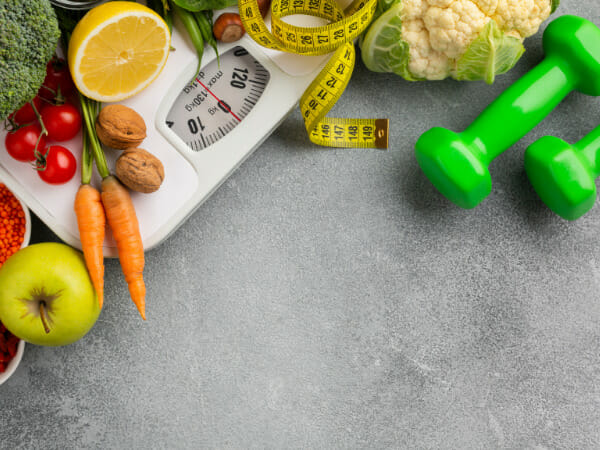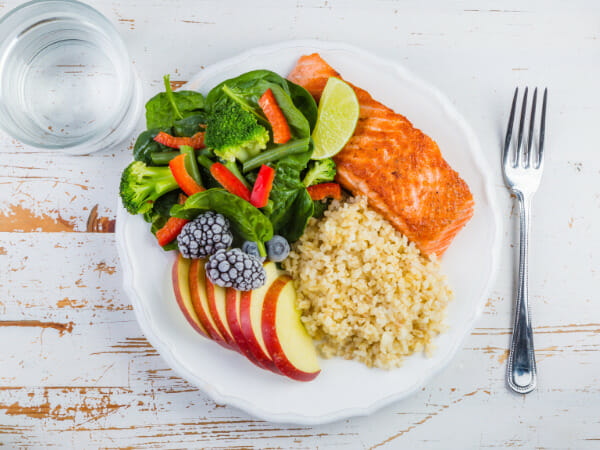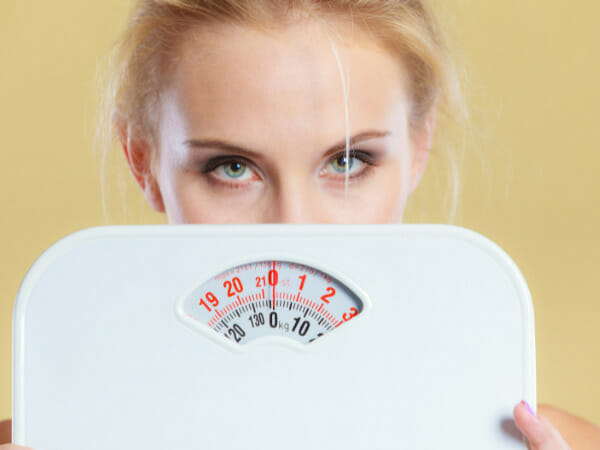Trying to Gain Weight?
More often than not, we tend to come across a lot of information about weight loss. Whether in intermittent fasting and dieting or exercising and pills, weight loss is a more consistent topic we hear about nearly every day.
However, it could be essential to gain weight as well. Being too thin or underweight can seem reasonable, especially with today’s consistent focus on weight loss. The reality, however, is that being underweight can be a somewhat problematic issue.
While fat has had an understandably lousy reputation, it can be vital to being healthy. Fat could cause people to become obese or overweight and increase the chances of diabetes and heart failure, among other diseases.
However, fat has good qualities too, especially when it is moderate. It is vital in determining how our body stores energy and aids the body’s function and growth. It is also beneficial in brain development, and it contributes to healthy skin and prevents inflammation. So, if you’re underweight, weight gain would be a perfect choice.
Am I Underweight?
The most crucial route to recognizing if you’re underweight or not is your body mass index (BMI). According to the Centers for Disease Control (CDC) website, if your BMI is less than 18.5, you fall into the underweight category. To calculate your BMI, you need to know your height and body weight, and you can insert the numbers on this calculator from the CDC.
It’s important to note that the BMI calculator cannot diagnose you. If you are under 18.5 (underweight) or over 25 (overweight), your doctor or personal physician can use it to assess your health and make medical decisions based on it.
That you’re under 18.5 doesn’t mean you need urgent medical care, but gaining body weight will help you feel better and on track to better health.
Other Symptoms That You May Be Underweight
If you’re underweight, you’ve noticed other symptoms apart from how low your BMI is. These symptoms can include:
- Dizziness from anemia
- Fatigue
- Fragile bones
- Hair loss
- The weak or struggling immune system
- Irregular menstrual periods
- Poor development
- Poor growth
- Problems relating to pregnancy
- Inability to concentrate
- Feeling unwell after meals
- Feeling cold, even in warm weather
- Little appetite or loss of appetite
These symptoms of being underweight are also symptoms that other diseases may have, so it is essential to discuss how you feel with a physician. If your BMI is below the 18.5 mark, you’re undoubtedly underweight, and having these symptoms only means you need to add some weight.
Do I Need to Gain Weight?
Being underweight can have its risks, making weight gain a critical issue. If you are underweight, there’s an excellent chance you need to gain weight, as you could be at risk of malnutrition.
Aside from this, you could be losing weight unintentionally, which can be caused by depression to an infection.
- You could also wish to gain weight due to personal reasons, including:
- You want to feel and look better
- When you want to improve your strength training and muscle mass after dealing with an illness
- You have a poor appetite
- You want to perform optimally
How Much Weight Should I Gain?
Goals can differ depending on where you are on your weight journey. For example, you might want to aim for weight maintenance first, especially if dealing with consistent weight loss.
When you can maintain your weight better, you could revisit your goals and work towards actually gaining body weight.
Why Do I Struggle to Gain Weight?
A great point to remember is that genetics play a rather important role in weight. Some people will be naturally leaner and can have lean mass, and that’s okay. For others, however, weight loss and the inability to gain weight can be caused by underlying medical conditions and other factors.
If you struggle to gain weight, you could be dealing with medical conditions obstructing your gains. These include:
Hyperthyroidism
This diagnosis causes an excess of the thyroid hormone in the body, which can dramatically increase the rate of metabolism. People with hyperthyroidism can burn more calories than others, even during rest. Without medication, gaining weight will look like a serious chore.
Type 1 diabetes
This autoimmune condition affects the production of insulin. Because insulin is the crucial hormone in metabolizing glucose, a lack of insulin can cause excess glucose. The excretion of this excess glucose through urine can lead to weight loss.
Inflammatory bowel disease
This condition, often noticed with the inflammation of the intestines, can dramatically impact the ability to gain or maintain body weight. Frequent diarrhea, as a result, can lead to weight loss. The condition can also limit the amount of food eaten by an affected person.
Eating disorders
There are different disorders, but the focus is on diseases limiting how much food an affected person can eat. When proper food intake is seriously limited, it won’t be easy to gain or even maintain weight.
Anorexia nervosa, an extreme eating disorder, can make it nearly impossible to gain weight while causing severe weight loss. Bulimia is also another eating disorder that makes it hard to maintain weight.
Medications
Different medications can make it challenging to stay at the same weight or gain weight. These include medicines that cause appetite loss, nausea, vomiting, and other side effects directly leading to weight loss.
You can discuss alternative medications or treatments with your doctor if you are on any medication that makes it hard to gain weight.
How to Gain Weight Fast for Skinny People
Being lean can be healthy, but not if you’re underweight, which is often a cause for concern. Use the following tips and strategies for fast and healthy weight gain. So, let’s take a comprehensive look at them:
Eat Frequently
If you’re underweight, you will likely get full more often or feel like you’re full faster than others. To combat this, try spreading out your food intake. Break up your mealtimes into smaller chunks rather than the standard two (or three) square meals per day.
Eat smaller portions of food five to seven times a day, rather than trying to cram everything into two or three large meals you can hardly finish.
Keep an Eye Out for Nutrient-Rich Meals
A healthy, balanced diet can do a lot regarding healthy weight gain, rather than going for junk food as your route. Choose whole-grain bread high in nutrients, and don’t forget cereals high in carbs. Pasta is also an excellent option for healthy carbohydrates and a good amount of calories.
Don’t ignore fruits and vegetables either. As a skinny guy, you want to gain weight fast but healthily. Dairy products are essential as they are pretty rich in fats and carbs and vitamins and minerals. Finally, add a lot of lean protein to your diet and nuts and seeds if you aren’t allergic.
Drink More Smoothies
Rather than gunning for sodas, coffee, and other more popular options, keep in mind that they don’t give a lot of calories, which you need. Also, sodas aren’t exactly a healthy route, despite what some advertisements will argue.
Give smoothies and shakes a try rather than fill yourself in on low-calorie, high-energy drinks. Go for milk-based fruit shakes and sprinkle toppings on them if that’s your style. Smoothies and shakes can be an excellent replacement for a meal, as they are filling and healthy too.
Watch When You Drink Water
While this sounds like scary advice, it isn’t. Some people lose their appetite and eat less if they drink water before a meal. Drinking water can be great if you’re working on losing weight; however, it does little for you if you need to gain weight.
A better option would be to hold off on water until starting your meal. Some people prefer having a drink thirty minutes after their meal, while others enjoy a drink during dinner. Either one can work for you as long as you don’t use the glass to fill yourself up before finishing the meal.
Here’s a great example of a timetable you can use to spread out your eating:
- Breakfast at 7 am – oats, raisins, yogurt, milk
- Snack at 10 am – mixed nuts, banana
- Lunch at 1 pm – chicken, pasta, parmesan cheese
- Snack at 4 pm – dried fruits
- Dinner at 7 pm – steak with potatoes
Snacks
Even if you’ve cut up your food portions to eat five to seven times per day, you should almost always be chewing on something. While chewing gum might come to mind, there are better alternatives like snacks. Treat yourself to consistent snacking with nuts, dried fruits, avocados, or whatever else tickles your fancy.
Having a bedtime snack is also a great idea, especially if it’s rich in carbs. A great example would be a peanut butter and jelly sandwich, which won’t keep you awake. You could also try sliced veggies, cheese, and meat too.
Remember that your snacks could be anything, and try always to eat healthy foods. Ice cream can be a nice snack, but you don’t want to do that ten times a day!
Always Add Extra Calories
Find ways to gain weight by adding extra calories to your meals, especially with toppings you enjoy. Get extra cheese on that pizza, or maybe cheese in casseroles too.
Are you making soup or stew? Use a thickener that has quite a few calories. Choose toppings that are likely to have more calories than other options too. It might seem small individually, but when the extra calories add up, they add up.
Treat Yourself Occasionally
As a skinny guy, you should remain cautious about high-fat foods and sugar, even underweight. When something is generally recognized as unhealthy, it’s usually unhealthy. However, you can reward yourself with a fun treat every once.
It is advised to make sure your treats are as healthy as possible, like bran muffins or granola bars. However, you could also go for some ice cream or pie. Remember to treat yourself in moderation.
Using Exercise for Weight Gain
When you want to gain weight, exercise can be a great way. Exercising, especially strength training, is excellent for skinny guys. It will help your muscles get toned and bigger.
The stronger you get, the more weight you’ll gain. On the upside, constant exercising will improve your appetite dramatically.
Lifting weights will push your body to build muscle mass and muscle gain, but you must start with weights that you’re comfortable with. When you lift weights and exercise, the food you consume goes towards building muscle and recovering your muscles.
While moderate amounts of fat can be helpful, gaining too much fat when you gain weight can be a problem rather than a fix. That’s why lifting weights and exercising can become valuable tools for skinny guys.
When you hit the gym, remember that rest is crucial in exercise. As muscles grow and recover, they will need to rest after working out if you work on the same muscle group daily. You don’t need more than three serious body workouts each week to improve your muscles and gain weight while finding time to rest.
Calorie Intake: Healthy Foods to Gain Weight Quickly
Gaining weight can be just as difficult as losing weight, depending on your weight goals. By adding particular types of food to your diet, your efforts to gain weight will become noticeable and effective.
So, let’s look at some healthy foods that can improve the health and effectiveness of weight gain and fat gain for most skinny guys:
Protein Smoothies (Homemade)
It’s often better to make your smoothies, mainly because the store-bought versions can lack necessary nutrients while being packed with sugar.
With some milk – use soy if you have lactose intolerance – you can make tasty smoothies with a few extra ingredients.
For a Vanilla Berry Shake:
- 1 cup (237 mL) of fresh or frozen mixed berries
- 1 cup (237 mL) of high protein
- Ice
- Full-fat Greek yogurt
- One scoop of vanilla whey protein
- Add whole milk
For a Chocolate Banana Nut Shake:
- One banana
- One scoop of chocolate whey protein
- One tablespoon (15 mL) of peanut butter
- Add whole milk
For a Caramel Apple Shake:
- One sliced apple
- 1 cup (237 mL) of full-fat Greek yogurt
- One scoop of caramel-flavored whey protein
- One tablespoon (15 mL) of sugar-free caramel sauce or flavoring
- Add whole milk
For a Green Shake:
- 1 cup (237 mL) of spinach
- One-piece avocado
- One (1) banana
- 1 cup (237 mL) of pineapple
- One scoop of unflavored or vanilla whey protein
- Add whole milk
These protein supplements are healthy and have high-calorie content, making them perfect for gaining weight. They will help you get enough protein in your diet to hit your desired calorie count.
Milk
This simplistic option adds a surprising amount of protein to your diet, which is essential if you want to gain weight. It has long been seen as a great source of protein, and it’s perfect for those who want to gain muscle weight.
You could try to drink milk every morning alongside your breakfast or even take it as a midday snack. If you please, you can make things more exciting with liquid calories; milk smoothies are a great way to improve your appetite, and here’s what you’ll need:
In your blender, add the following ingredients:
- 1 cup of frozen berries
- 1 cup of whole milk
- Two teaspoons of honey
- One teaspoon of vanilla
- Any toppings of your choice
Rice
Energy-dense foods are a great way to consume enough calories, and rice is arguably one of the world’s most affordable and easily found foods. From a single serving of rice, you can get a lot of calories, and it doesn’t pack a lot of fat.
You can eat rice with any toppings of your choice, and many cultures have different ideas of what rice goes best with. Whatever you enjoy with your rice should offer an added protein boost, like eggs, nuts, or cheese.
Red Meat
This particular type of meat, found in beef, can be a great source of enough calories and protein. While you can go for lean meat, there is little harm in fattier meat, which provides even more calories per pound.
Eating meat can also be beneficial if you’re exercising and can build muscle. The protein in the meat is excellent for aiding the healing of tired muscles and the growth of new ones.
Potatoes and Sweet Potatoes
Many athletes take potatoes as a source of carbs and calories, mainly because they increase the glycogen in the body. Glycogen is vital for sporting activities, and it would also be helpful for you if you want to get some cardio done.
Aside from carbs, potatoes contain fiber and other nutrients, which are critical to a healthy balanced diet.
Other starchy carbohydrates like potatoes that you can use to gain weight include:
- Quinoa
- Oats
- Corn
- Buckwheat
- Squash
- Winter root vegetables
- Beans and legumes
If you’re looking to add excess calories to these options above, you’ll have to use healthy, calorie-infused toppings or additions like the following:
- Add sour cream to potatoes
- Add cheese to quinoa or mashed potatoes
- Roast your vegetables with healthy fats like avocado oil or olive oil
- Add sliced olives as a topping
- Adding hummus to whole grain bread
Fish
Like red meat, fish make up protein-rich foods and essential fats, especially salmon and other oily fish. These fishes also contain many omega-3 fatty acids, which are healthy and aid in fighting disease.
Healthy Cereals
Carbs, calories, and nutrients are just a few benefits of healthy cereals. Most cereals are usually packed with a lot of sugar, and you should refrain from these. Instead, here are a few cereal types you should go for:
- Oats
- Granola
- Multigrain
- Bran
You can also add toppings to your cereal to improve its taste and add to your calorie intake. Healthy toppings for your cereals include:
- Nuts
- Dried fruit
- Chia seeds
- Fresh berries
Cereal bars are also an excellent idea for snacks in-between meals and a breakfast meal. However, you should refrain from buying sugar-packed bars that won’t do much good. Instead, purchase high-calorie, high-carb cereal bars.
Focus On Calorie-Dense Foods and Whole Foods
Thanks to their nutritional benefits, vegetables are great for you, but they won’t be of much help when you want to add calories to your diet. The best foods for weight gain are high in healthy fats, calories, carbohydrates, and proteins.
Since vegetables have very few options in this regard, here are some high-calorie foods you can use to gain weight quickly:
- Dried fruits: raisins, dates, prunes, apricots
- Meat: chicken, beef, high-fat fish, or fatty fish
- Dairy: whole milk, full-fat yogurt, cottage cheese
- Grains: pasta, rice, oats, bread, sandwiches
- Potatoes, sweet potatoes, yams
- Fats: olive oil, coconut, avocado
- Nuts: almonds, walnuts, peanut butter, mixed nuts, trail mix
There will be some temptation to go for junk food instead. After all, people who eat much fast food and junk get overweight.
However, you have to remember that gaining healthy weight is vital, not just gaining any weight. Bad eating habits will only cause more problems for you in the long term.
While there is a lot of focus on food quantity, food quality is also essential. You need to eat more food, but you need to eat well. Stay away from junk food as much as you can and focus on foods that will help you gain weight, muscle mass, and muscle weight.
Mistakes You Should Avoid When Looking To Gain Weight
It’s possible to find that you’re not gaining weight, even though you seem to be doing everything right. These are a few mistakes skinny guys often make when improving their weight, so you need to watch out for them.
Expecting Weight Gain Overnight
Nothing good comes easy, they say. If you want to gain weight healthily, it will not happen suddenly. You may have to change your lifestyle and improve your diet, which isn’t always easy. However, if you keep at it consistently, you will see results.
Skipping Meals
If you forget to take meals and snacks, you might not hit your calorie target for the day. If this happens often, you’ll simply maintain your weight or even lose it, rather than seeing any gain.
Ignoring Healthy Methods
Sure, you could go the junk food, high-sugar route if you like. But in the long-term, this will only affect your mental and physical health. Stick to high-calorie meals and maintain a healthy diet.
Not Exercising
Contrary to popular opinion, exercise won’t make skinny guys lose weight, especially if they eat more than they burn during exercise.
If you work on strength training and compound exercises, you’ll gain muscle and general body strength rather than lose weight. So think of the gym as an added advantage to build muscle growth.
Conclusion
Adding body fat can be a good thing. Yes, being overweight can be problematic, but body fat is very beneficial to improving your general health.
High-calorie foods can help with your weight gain goals while ensuring that you eat more calories. Such foods tend to be healthy rather than fast food or junk food.
Finally, do not be in haste to gain weight, as it is a gradual process in the human body. Stay away from weight-gainer shakes, as they are generally unhealthy with high sugar content. However, it is advisable to make this muscle-building supplement; all you need is a protein powder, dried coconut, ground oats, milk, and ground flaxseeds. Exercise and eat more calories from healthy food sources, and you’ll find yourself on the way to better health.
Frequently Asked Questions About Gaining Weight
Listed below are some frequently asked questions on how to gain weight more efficiently:
How can I eat to gain weight fast?
Are you just a skinny guy that needs to eat more; start eating 10-15% more food with each meal you take? This method could mean an extra 350 calories per day on average.
An extra smoothie or a high-calorie snack can easily give you a calorie surplus, and you can gain a few pounds from there.
How can I gain weight even though my metabolism is high?
Simply by eating enough calories, more than you burn each day. Discuss the necessary steps with your doctor if your high metabolism is caused by disease or other health factors. Aside from that, if you eat more calories than you burn calories, you will gain weight in time.
Can I gain a lot of weight within a month?
That depends on how underweight you are and other factors causing your unwanted weight loss. If you have any diseases or eating disorders, you’ll have to get better and maintain weight before thinking about gaining weight.
An active calorie surplus per day can see you gain more than 15 pounds in just one month when you’re ready. Eat more food consistently, eat more calories than you burn, and see the difference.
I still can’t gain body weight, and I eat a lot. What do I do?
You think you’re eating a lot, but you’re not. Decide on how many calories you need and make sure the number is more than the recommended daily calorie intake. Women, on average, need about 2,000 calories per day, while men need around 2,500 per day. Monitor your calories, and you may realize you’re not eating enough calories. So, how many calories should you be consuming daily?
If you still have issues gaining weight, reach out to your doctor, just in case you have a medical problem keeping your weight down.
What are the best/healthiest foods for weight gain?
Energy-dense foods tend to be the best for weight gain. If it has a lot of calories, carbohydrates, protein, and healthy fat, it will help you gain weight. Everything from dairy products, pasta, fish, meat, eggs, nuts, and rice are high in calories.
Can I gain weight without gaining fat?
No. Eating more calories than you burn, and being more active in the gym, will make you gain one of fat for every pound of muscle growth. Remember that fat might have a bad rep, but it isn’t inherently wrong.
The type of fat you take matters, and healthy oils are a great source. Fat gain isn’t a problem you should worry about.









